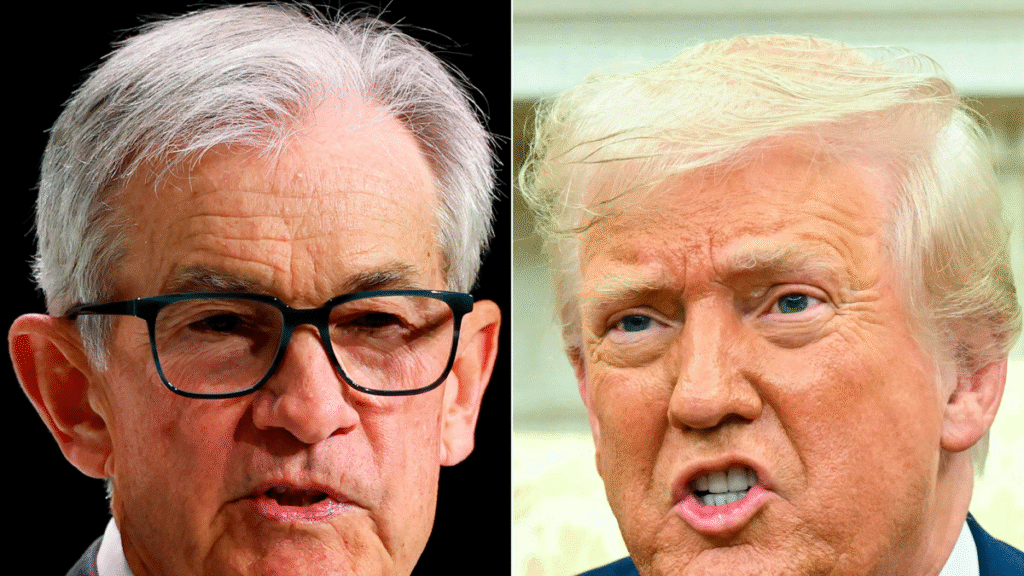Background on Jerome Powell and the Federal Reserve
Jerome Powell, the current Chair of the Federal Reserve (Fed), has been a significant figure in U.S. monetary policy since taking office in February 2018. As the head of the central bank, Powell plays a crucial role in setting interest rates and ensuring financial stability. The Federal Reserve, established over a century ago, is designed to operate independently from political influences.
Trump’s Recent Criticism and Threats
Over the past few weeks, President Donald Trump has been increasingly critical of Powell’s monetary policy decisions. On April 18, Kevin Hassett, the White House Council of Economic Advisors (CEA) chairman, hinted at the administration’s consideration of firing Powell. This statement sparked concerns about the Fed’s autonomy and rattled investors amidst escalating trade tensions.
Trump’s Shift in Stance
On Tuesday, Trump clarified his position during a press briefing in the Oval Office. He stated that he has no intention of firing Powell but wants to see lower interest rates.
Trump: “I don’t have any intention of firing him, but I’d like to see him a little more aggressive on the idea of lowering interest rates.”
This statement comes after several days of harsh criticism from Trump, who accused Powell of acting politically by not further reducing interest rates. Trump also threatened to remove Powell “very quickly” if he continued to resist lowering rates.
Legal Limitations on Firing Powell
Despite Trump’s persistent criticism, most analysts agree that he lacks the legal authority to dismiss Powell or any other principal Fed members. The Federal Reserve system was constructed to protect it from political interference, limiting the president’s power of appointment and requiring Senate confirmation for certain positions.
Impact on Financial Markets
- Increased market volatility: Trump’s threats and criticism of Powell have contributed to heightened uncertainty in financial markets.
- Investor confidence: The ongoing tension between the president and the Fed chair has shaken investor confidence, particularly as trade wars intensify.
- Interest rate expectations: Trump’s call for lower interest rates has put additional pressure on the Fed to adjust its monetary policy, despite inflation remaining within target levels.
Key Questions and Answers
- Q: Can Trump legally fire Powell? A: No, the Federal Reserve system is designed to protect it from political interference. The president’s power of appointment for Fed positions is limited and requires Senate confirmation.
- Q: What are the potential consequences of Trump’s criticism on financial markets? A: Increased market volatility, decreased investor confidence, and pressure on the Fed to adjust interest rates despite low inflation.
- Q: How has Powell’s tenure as Fed Chair been affected by Trump’s recent actions? A: Powell has faced heightened scrutiny and criticism from the president, which has contributed to market uncertainty and strained relations between the executive and monetary authorities.






